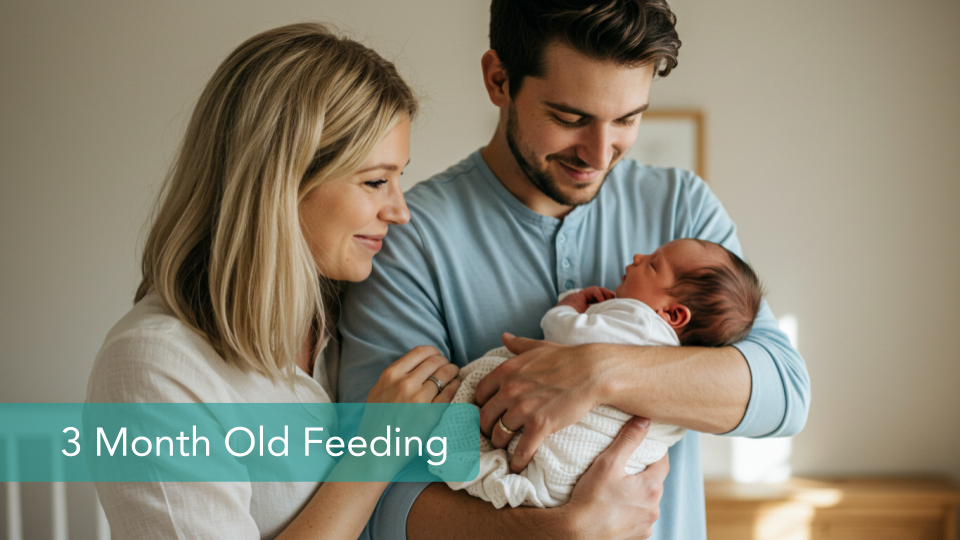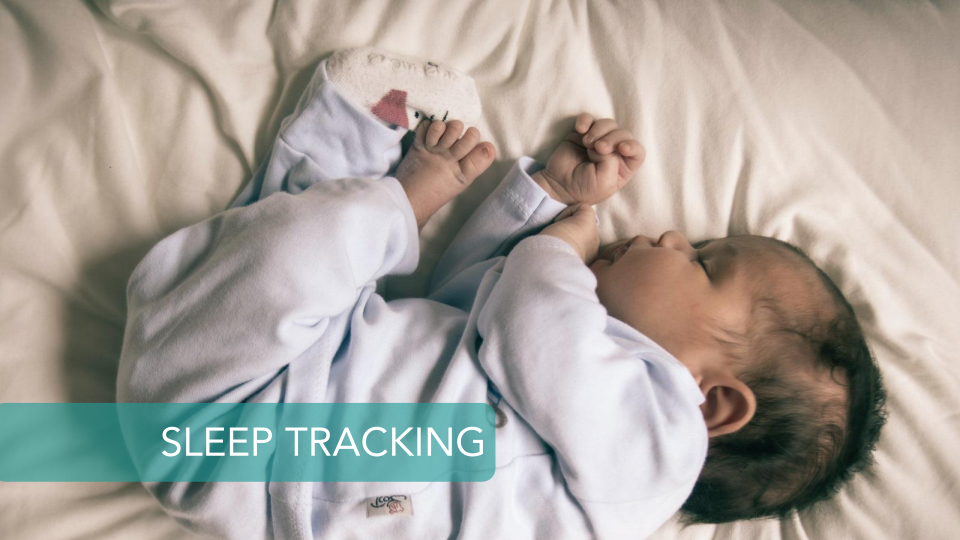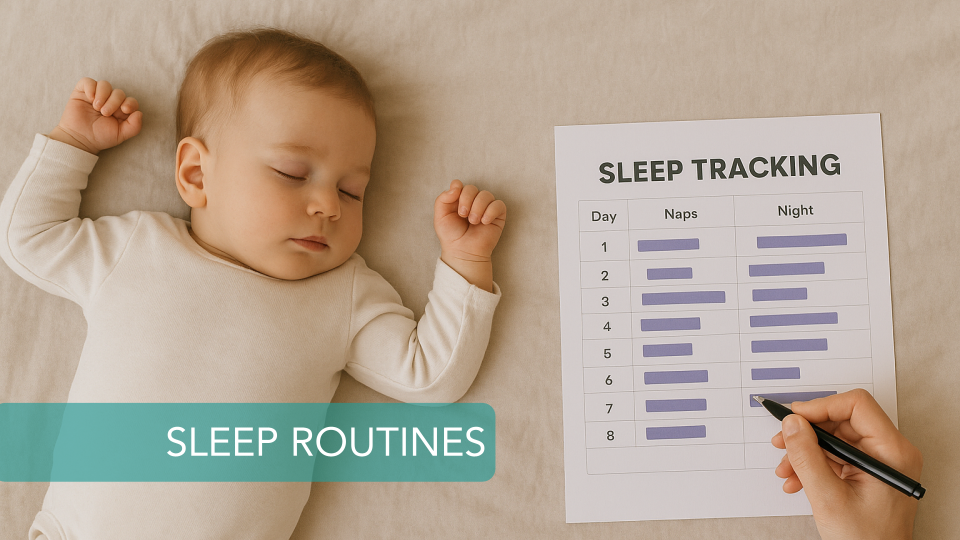3 Month Old Sleep: Patterns, Tips, and What to Expect
- Noor El-Tayeb

- Sep 23, 2025
- 3 min read
At 3 months, many babies begin showing more regular sleep habits. Nights may stretch longer, naps are still frequent, and some early routines start to take shape. Parents often feel a little relief compared to the unpredictable early weeks, though waking at night is still common.
Understanding 3 month old sleep—what’s typical, how to encourage healthy rest, and what parents can expect—helps you prepare for this important stage.

How Much Does a 3 Month Old Sleep?
Most 3 month olds need 14–16 hours of total sleep in 24 hours. This usually includes:
10–11 hours at night (not always continuous)
3–5 naps during the day totaling about 4–5 hours
While some babies may sleep 6–8 hour stretches at night by this age, many still wake once or twice to feed. Sleep needs vary, and every baby progresses at their own pace.
Sleep Patterns at 3 Months
By 3 months, sleep begins to feel a little more predictable. Common patterns include:
Longer night sleep stretches, sometimes 5–8 hours
Daytime naps every 1.5–2 hours of awake time
A more noticeable bedtime routine as parents establish habits
Early signs of a circadian rhythm, helping babies distinguish day from night
Parents often notice their baby is more alert during awake times, making it easier to create structured feeding and play schedules around naps.
What to Expect with 3 Month Old Sleep
Here’s what’s realistic for most babies at this stage:
More consolidated sleep at night, though night waking remains common
Short naps, usually 30–90 minutes, totaling about 4–5 hours
Awake windows of 90 minutes to 2 hours before needing another nap
Babies becoming more responsive to routines and cues, making it a good time to start simple bedtime rituals
It’s important to remember that while things may improve, consistency is not guaranteed. Growth spurts, developmental leaps, or illness may disrupt sleep temporarily.
Tips to Support Healthy 3 Month Old Sleep
At this stage, you can begin laying the foundation for better sleep habits:
Practice safe sleep: Always place your baby on their back, in a crib or bassinet with no pillows, blankets, or stuffed animals.
Start a bedtime routine: A simple routine—such as a bath, book, or lullaby—helps signal bedtime.
Watch awake times: Babies do best with 90–120 minutes awake before needing rest.
Encourage longer nighttime sleep: Keep nights dark and quiet, with minimal interaction during feedings.
Track progress: Apps like Cubtale can help you log naps, night sleep, and feeds so you see patterns clearly.
Safe Sleep Guidelines for 3 Month Olds
The American Academy of Pediatrics (AAP) and National Institutes of Health continue to recommend:
Back to sleep for every nap and nighttime sleep
Firm, flat sleep surface with no loose bedding
Room-sharing without bed-sharing for at least the first 6 months
Avoiding car seats, swings, and inclined sleepers for routine sleep
Keeping the sleep environment smoke-free and cool
At 3 months, babies are still safest in a controlled, minimal sleep space.
Helping Parents Cope with 3 Month Old Sleep
Even though sleep may be improving, parents may still feel exhausted. Helpful strategies include:
Stick to routines: Babies begin responding well to consistent bedtime signals.
Nap when possible: Even short rest periods help you recover.
Share nighttime duties with your partner if available.
Accept help from family or friends for a few hours of relief.
Use Cubtale to track feeds and sleep so you can focus more on rest and bonding.
When to Call the Doctor
Most variations in 3 month old sleep are normal, but consult your pediatrician if:
Your baby is unusually difficult to wake
They consistently sleep more than 8–9 hours without feeding and have poor weight gain
Breathing seems labored, noisy, or irregular during sleep
You notice bluish skin or other concerning symptoms
Always trust your instincts—pediatricians expect sleep-related questions from parents at this age.
Final Thoughts
3 month old sleep brings gradual progress—longer nighttime stretches, more defined naps, and the beginnings of a routine. While challenges remain, parents usually feel more confident by this stage.
By following safe sleep guidelines, starting gentle routines, and using tools like Cubtale to track progress, you can make this stage smoother and set a healthy foundation for the months ahead.
Remember, each baby develops differently. What matters most is responding to your baby’s needs and supporting their growth in a safe, loving way.
Sources
American Academy of Pediatrics – Safe Sleep
National Institutes of Health – Safe to Sleep®
Nemours KidsHealth – Baby Sleep at 3 Months





Comments